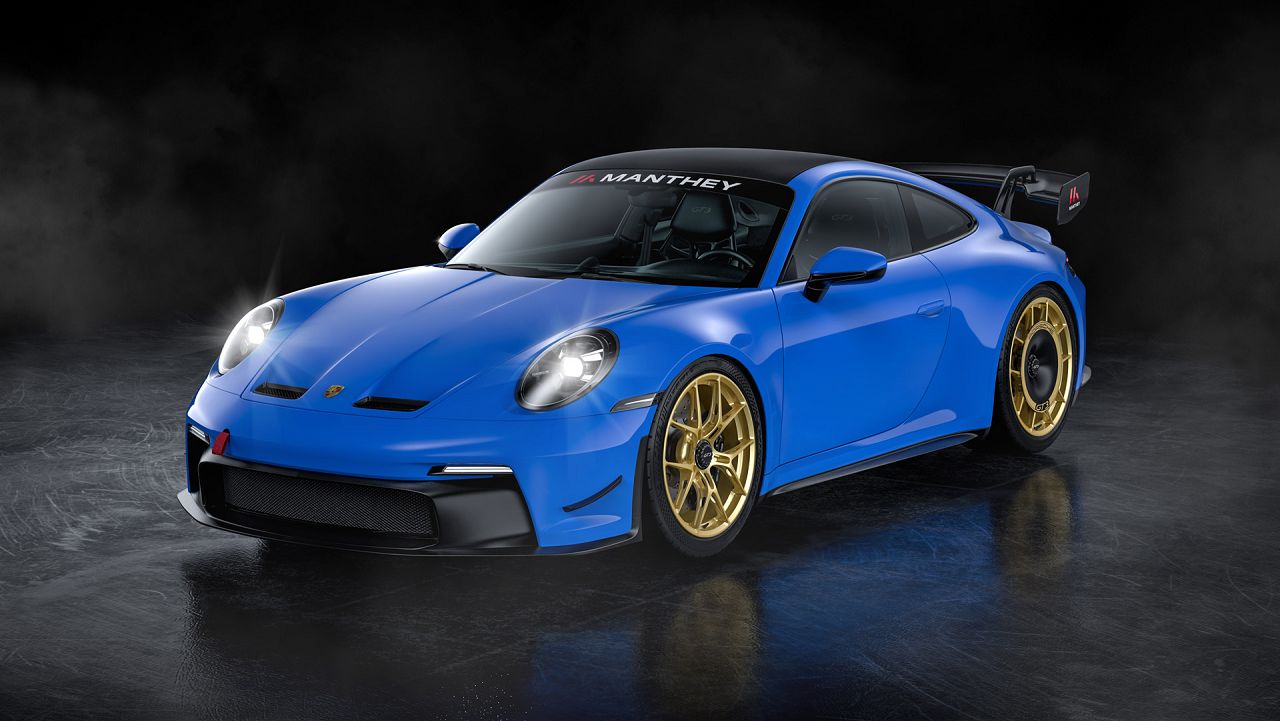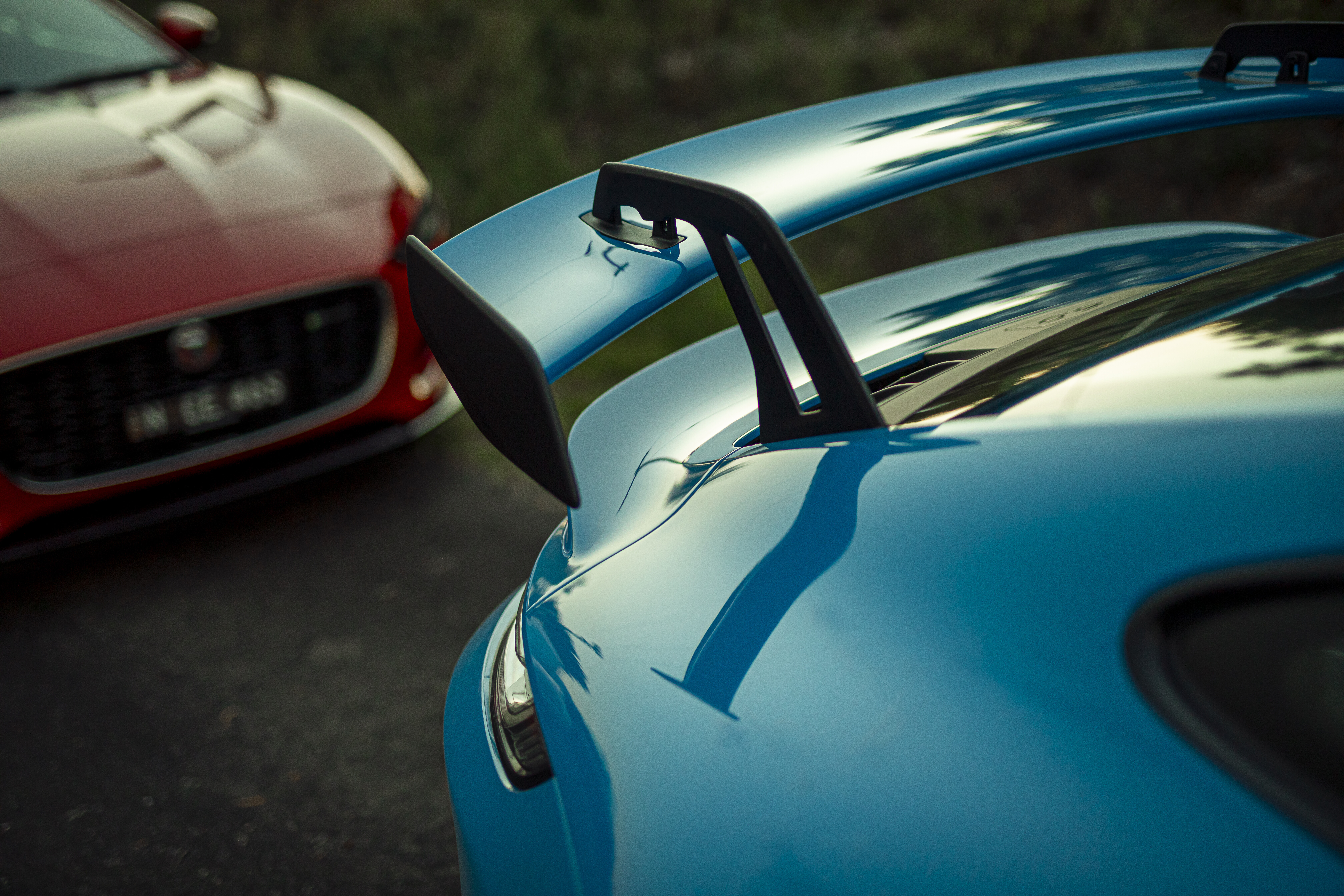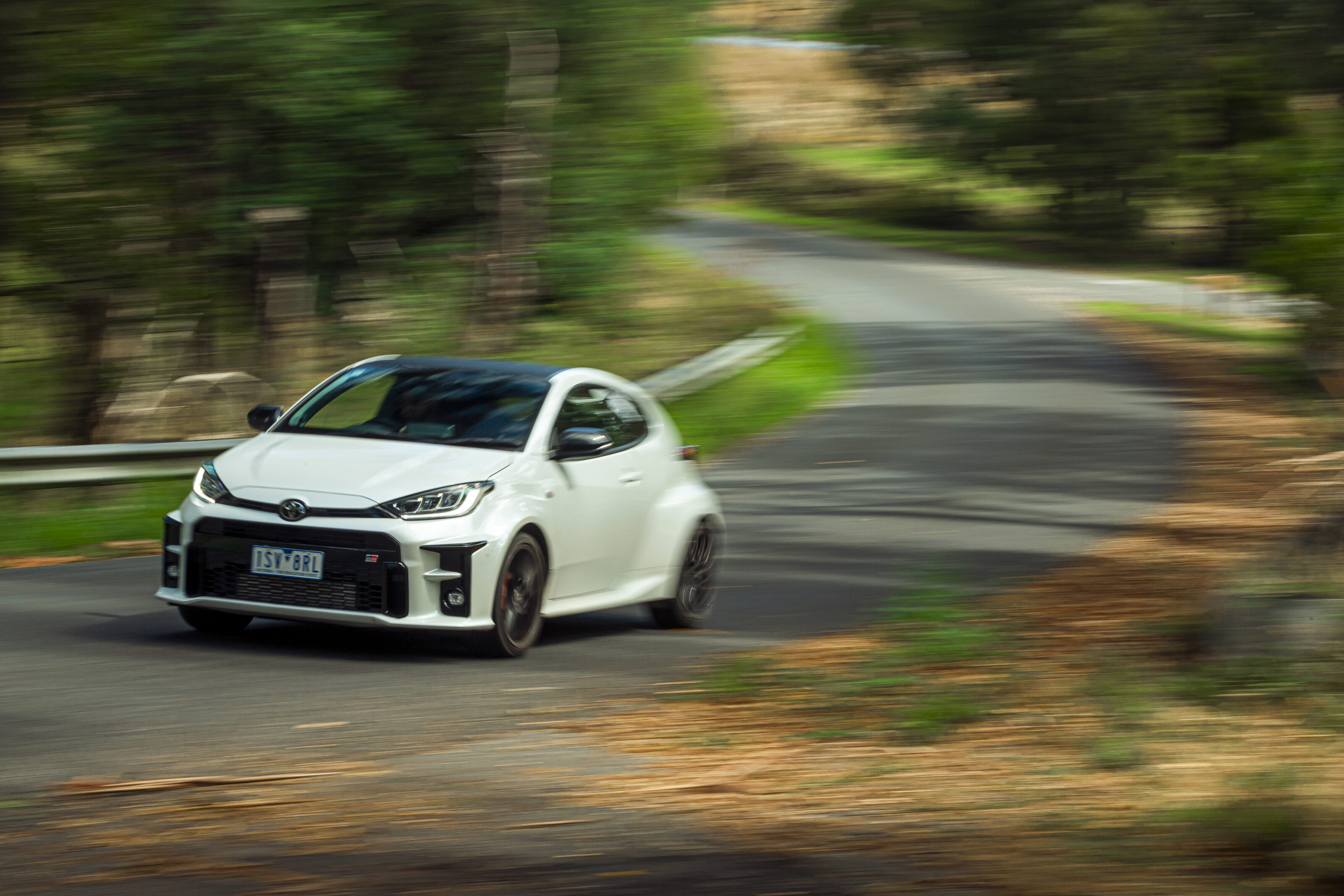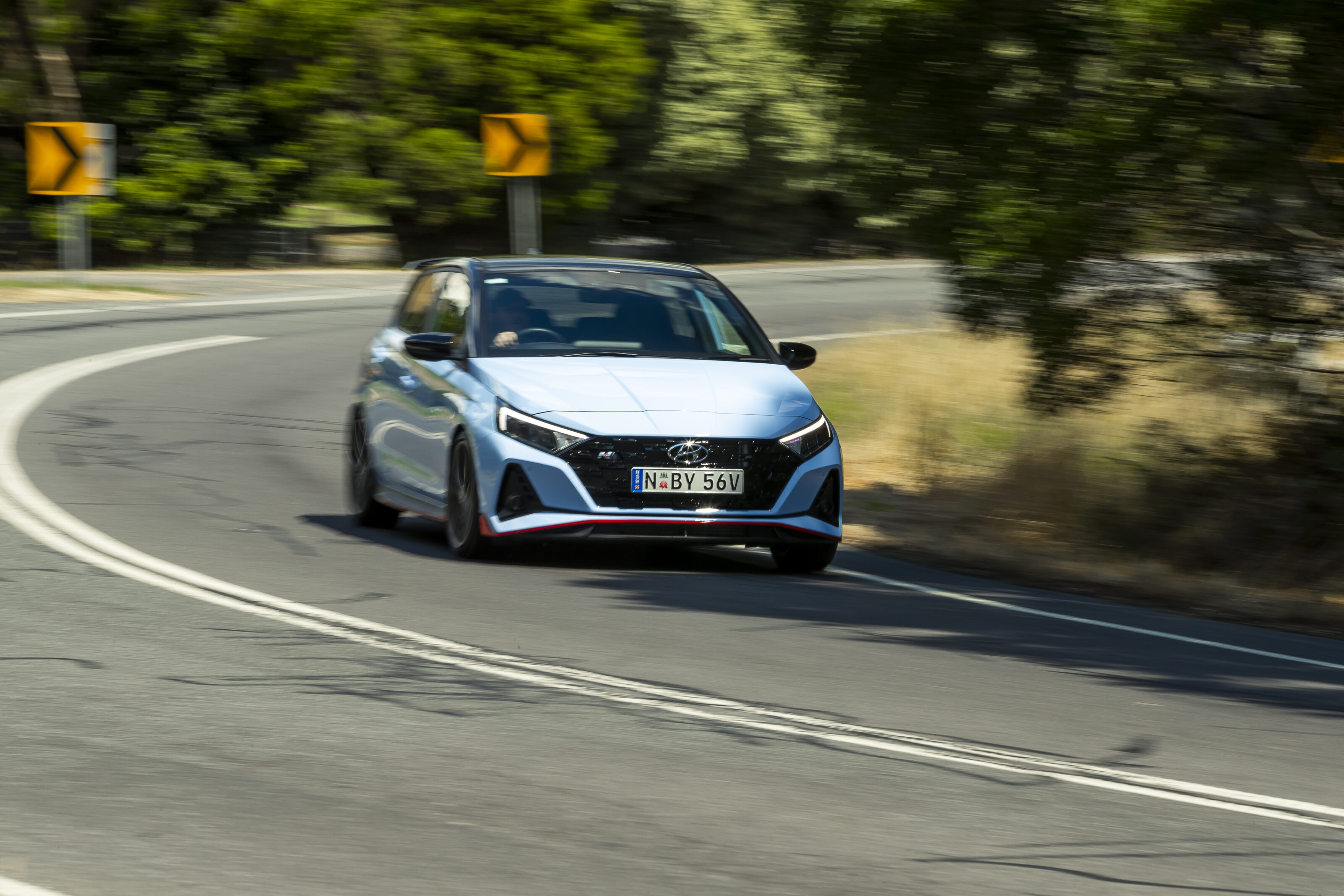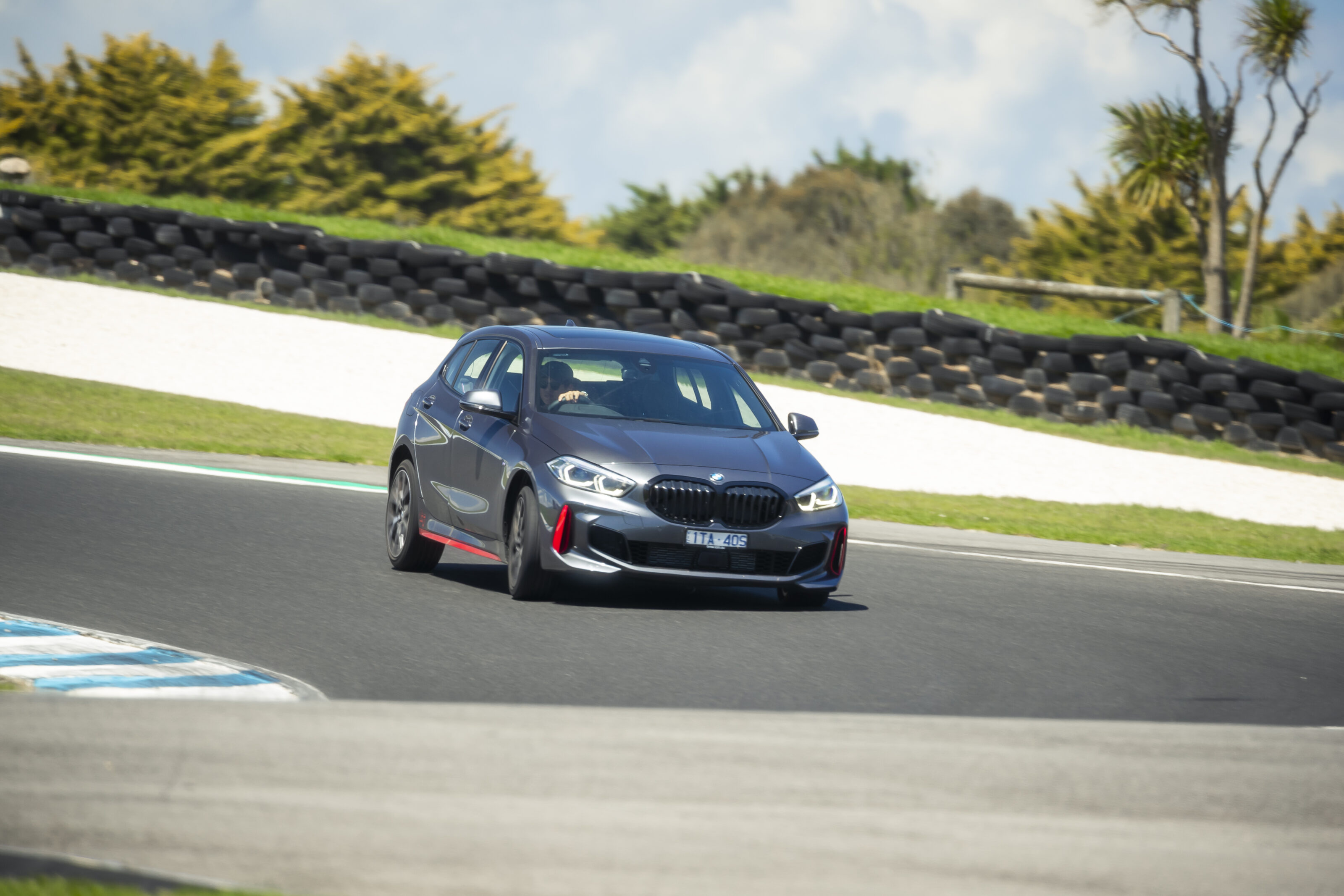We couldn’t help but notice that when EPW70G arrived at Performance Car of the Year, Porsche had cranked the swan-neck rear wing to its most aggro setting. Not all PCOTY entrants were quite so optimised. The Ford Mustang Mach 1 arrived with different tyres front and rear while the Skoda Octavia RS was, mystifyingly, presented for performance testing furnished with bars and a roof box.
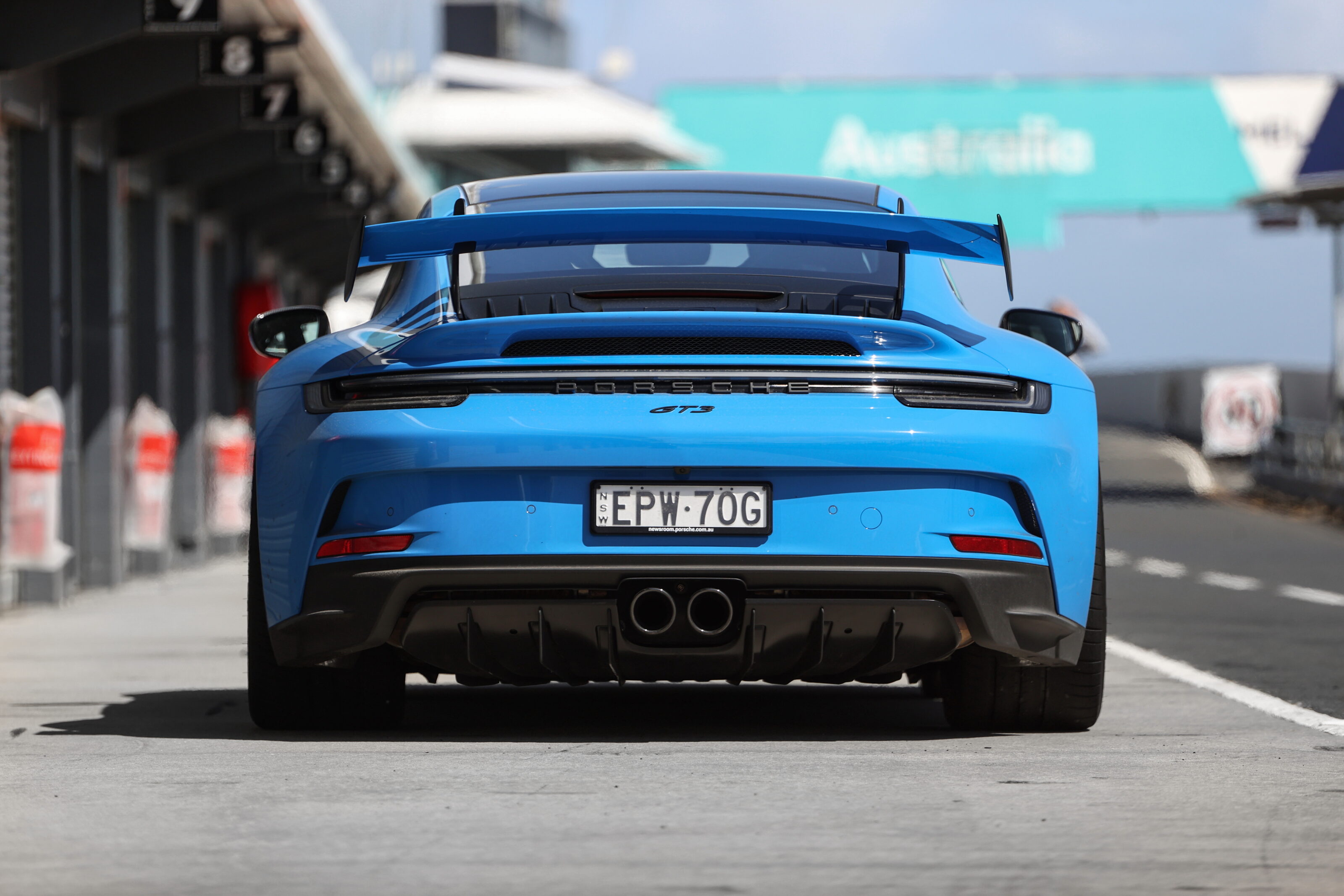
Porsche claims that even with the rear wing set to its most benign angle, downforce is increased by 50 per cent compared to the preceding 991.2 GT3. In the PCOTY position, which couples with a front diffuser setting that Weissach stresses isn’t intended for street use, downforce increases by “up to approximately 150 per cent”.
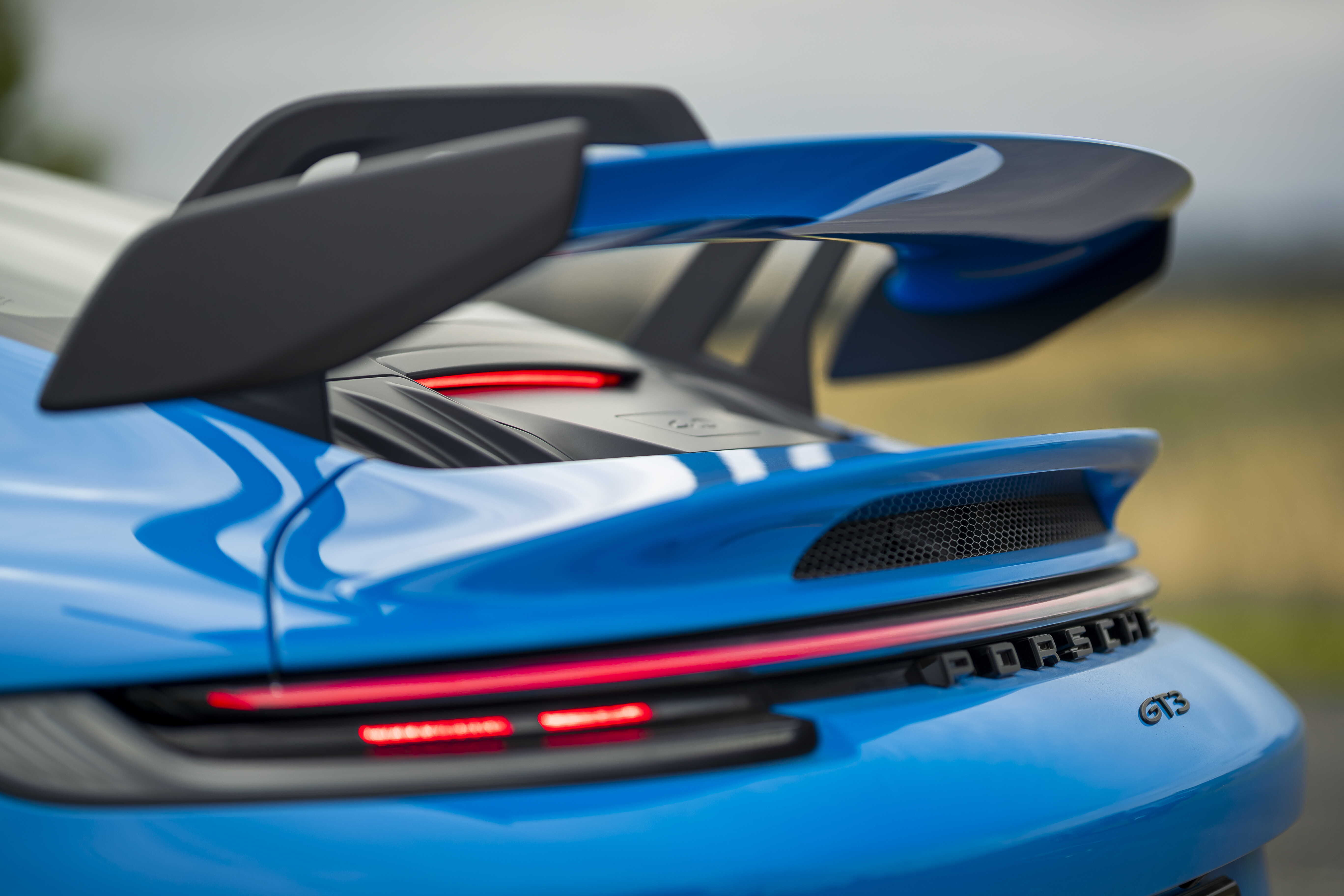
“Up to approximately” sounds somewhat vague for a company renowned for its rigid exactitude. Researching a little further, we find that at 200km/h, both the 991.2 GT3 RS and 992 GT3 develop (in their most aggressive settings) 144kg of downforce. The 991.2 GT3 is good for 69kg and, to add a bit of a historical perspective, the prior 3.8-litre 997.2 RS has 60kg. So, in real terms, downforce at 200km/h has more than doubled.
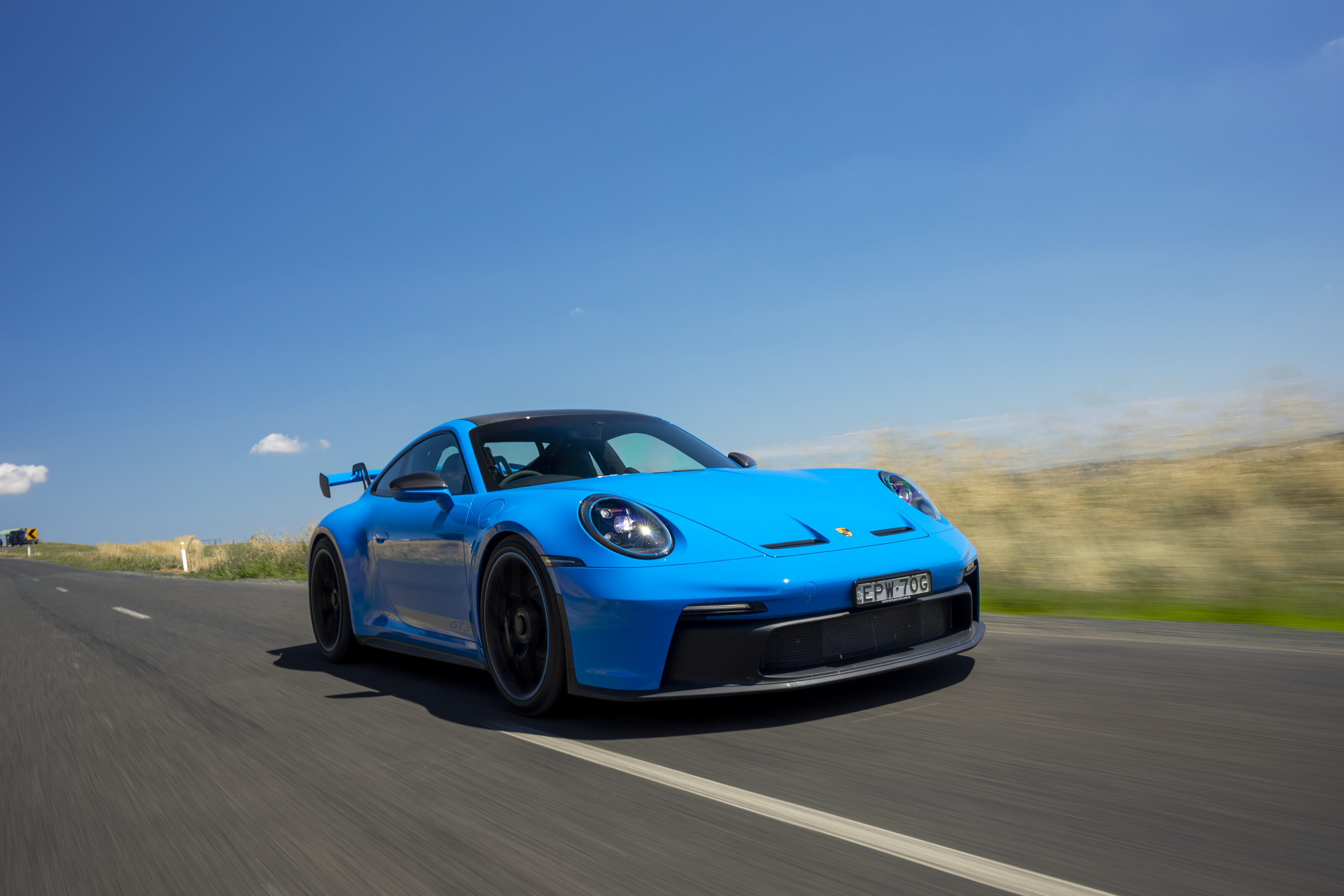
Manthey Racing, who know a thing or two about 911 aerodynamics, has gone on record stating that the 992 GT3’s best setup for achieving an optimal lap time is maximum rear wing, but only the third position of four possible options for the front aero elements. Apparently maximum everything at the front promotes a degree of high speed oversteer, which is how our car was set up. We didn’t experience much in the way of high-speed waywardness from the rear end.
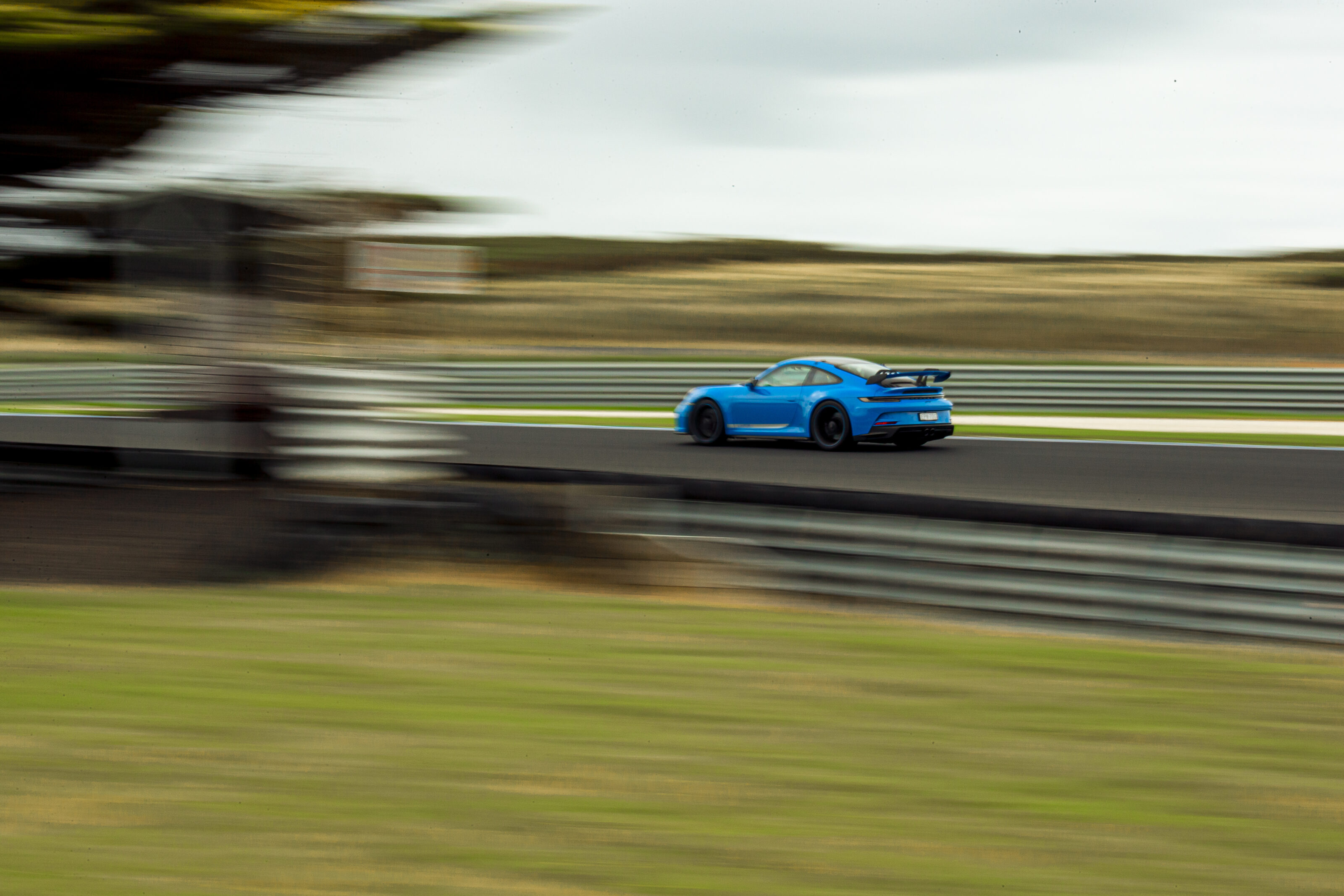
Of course, should you feel that your 992 GT3 isn’t tied-down enough, Manthey has developed an improved aero package for the car with a new front splitter, rear diffuser, carbon fibre rear wing, canards and rear wheel aero covers. Fully approved by Porsche and retaining the GT3’s original customer warranty, the kit also includes braided brake lines and uprated pads, four-way adjustable suspension and a set of lightweight OM-1 wheels.
